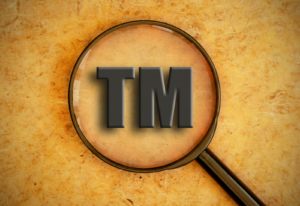Businesses looking to get into the non-fungible token (NFT) space have a chance to reap some serious profit if they do it right. Rare NFTs can sell for tens of millions of dollars. In 2021, The Merge sold for $91.8 million on Nifty Gateway, making it the most expensive NFT to date.
However, due to the decentralized and anonymous nature of the crypto world, NFTs come with a host of legal issues regulators haven’t caught up with yet.
What Are NFTs?
Non-fungible tokens are unique digital tokens that represent proof of ownership of a tangible or intangible asset (or both). Each NFT’s metadata and identification code are unique, so no two are identical. This is why NFTs are non-fungible (not interchangeable).
When an NFT is created, or minted, it gets timestamped and stored in an open blockchain. The blockchain is essentially a public digital ledger, evidencing ownership and transfers of ownership.
Information on the blockchain can’t be edited, so the NFT’s block serves as permanent proof of ownership. Most NFTs run on the Ethereum blockchain, though you can find some that use other blockchains like EOS, TRON, and Flow.
The asset represented by the NFT can be virtually anything, from artwork and songs to virtual real estate and even academic certifications. For example, you might buy an NFT of a digital copy of a famous painting.
It’s important to note that the asset itself usually isn’t the same thing as the NFT. The NFT is the blockchain token that contains the asset’s web address. So, when you buy an NFT, you’re essentially buying a piece of code that links to an asset. The rights that come along with that piece of code are crucial to understand.
Are NFTs Legal?
As long as you’re following copyright laws and selling legitimate assets, creating, selling, and reselling NFTs is legal. Like with most digital innovations, though, regulatory legislation has been slow to catch up and clear guidelines have yet to be established.
At the U.S. federal level, NFTs have not yet been defined among the array of personal and business assets as securities or commodities — and laws applicable to NFTs depend on whether they’re classified as securities or commodities. NFTs have been of special interest to the U.S. Securities and Exchange Commission as of late, which will remain the case unless lawmakers decide to formally and universally classify NFTs as commodities or something else.
Fractional NFTs (f-NFTs) are especially interesting when it comes to classification, as they break NFT ownership into profit shares. Because this arrangement enables buyers to profit from the efforts of others (usually the creator), the purchase of a share of an NFT could be considered investing in a security or investment contract.
When it comes to classifying NFTs as commodities, the reasoning comes from the similarities NFTs share with other blockchain-based digital assets, such as cryptocurrency, though the cryptocurrency classification question has yet to be settled, as well. Throughout 2023, the House of Representatives will consider proposed cryptocurrency regulation measures and related bills, meaning we may have a clearer picture of NFTs and other cryptoassets as commodities by the end of the year.
What Are Some of the Legal Issues With NFTs?
Because NFTs are still so new, little official guidance for regulation has been released thus far. Understanding the following NFT legal issues is essential for businesses looking to successfully move into the digital asset space.
Copyright, Licensing, and Intellectual Property
Are NFTs legally protected under copyright law? The answer is both yes and no.
The artwork or asset the NFT links to is protected under copyright law. However, the token on the blockchain isn’t. It’s like hanging a print of a modern painting on your wall. You don’t own the original work or the rights to reproduce it — you just own a copy of the work.
Here’s where the conversation around intellectual property law and NFTs can get tricky. The creator or owner of the original work can transfer the copyright through the sale using legally binding smart contracts if they choose. A smart contract is an often unchangeable program stored on a blockchain that automatically executes specific actions when certain conditions are met. The conditions in this case would be the purchase of the NFT.
Once the buyer provided payment for the NFT, the smart contract would execute the sale, and the buyer would own the rights to the original work if that was the seller’s intent and reflected in the code. Smart contracts only feature code that executes actions when specified conditions are met. They rarely include legal language, terms, or agreements outside the bare minimum to complete the transaction.
However, there are copyright laws that can prevent unauthorized NFT creation. Copyright holders can block NFT production unless they grant rights to the developer. For example, if a company wanted to sell NFTs using Disney’s characters, they would need to license that intellectual property from Disney before making the NFTs or face Disney’s army of IP lawyers.
In short, the owner or creator determines who gets the rights to the intellectual property in the NFT, and the seller determines what rights the buyer obtains through the sale. Sellers need to make clear what exactly buyers receive when they purchase the NFT.
Ownership and Succession Planning
Blockchains form permanent, immutable ledgers that serve as proof of ownership. Because it’s impossible to go back and edit them, the transaction record is safe and secure. However, what happens when someone wishes to transfer their NFT to someone else?
Take NFT real estate, for example. If you were to buy virtual land in the metaverse, it would be treated like any other asset. You could even bequeath it in your will as long as you provided the executors and beneficiaries with enough information to identify, access, and transfer it.
This also means your NFT collection could be subject to probate when it comes time to execute your succession plans. The methods to ensure these assets go where they should continue to develop as NFTs mature. This is especially important due to the complexities with unique passphrases for blockchain wallets.
Money Laundering
As NFTs continue to rise in value, they are becoming increasingly profitable targets, like other cryptoassets. Because digital assets offer a degree of anonymity that traditional currency doesn’t, criminals have an easy means of discreetly self-washing funds, making collection all but impossible for most non-governmental parties.
If someone wants to launder funds using an NFT, all they have to do is create a fake record of sales on the blockchain by selling it to themselves using different accounts. Once finished, they just have to sell it to an unsuspecting buyer and repeat the process.
Whether anti-money laundering regulations apply to NFTs depends on their classification. If NFTs are classified as currency, or substitutions for currency, then the Bank Secrecy Act would extend to NFTs. The Department of Justice is currently pushing for this treatment, though no official guidance has yet been released as of February 2023.
Fraud
The crypto landscape is anonymous and decentralized, making NFT scams a very real risk for buyers. Some of the most common NFT scams include:
- Phishing: This is the most common NFT scam. A scammer sends fake links to sales using popular social media channels. Once an unsuspecting NFT holder clicks on the link, the scammer accesses their NFT wallet and steals their assets.
- Rug-pulls: In a rug-pull, scammers generate buzz around an unreleased NFT and suddenly shutter the project and vanish as soon as they receive the purchase or investor funds.
- Plagiarism: Although NFTs are fundamentally unique, plagiarism is a major problem in many marketplaces. For example, someone could mint and sell a replica of a rare NFT they don’t own, which is essentially worthless and infringes on the original NFT.
No official legislation exists that applies specifically to NFT fraud, but there are ways to prosecute scammers using existing prohibitions on deceptive and manipulative trade. Jurisdiction is the real problem here, as it’s still unclear who will regulate crypto trade moving forward and how to identify people who are transacting through largely anonymous means, often across international borders.
Taxation
While it’s still unclear what will happen with NFTs and taxation laws in the future, we do know that the IRS considers NFTs to be digital assets, which means they’re subject to ordinary income tax and capital gains everywhere in the United States. Anyone who sells, receives, or gifts NFTs must also answer “yes” to the crypto tax question on Tax Form 1040.
That said, creating or buying an NFT isn’t considered a taxable event. Businesses and individuals can create and purchase as many NFTs as they wish tax-free. Once they begin selling them, however, they must file taxes accordingly. All creators should discuss R&D tax credits or other R&D-related benefits with their accountants relating to their NFT portfolios.
The Legal Future of NFTs
Like with other web3 technologies, it is still unclear how NFTs will impact legislation moving forward. Will they function like any other asset or will more specific laws need to be drawn up? Stay tuned for the latest on web3, crypto, and digital assets by keeping up-to-date on our blog.
Where do you see things going for digital assets and NFTs?
























